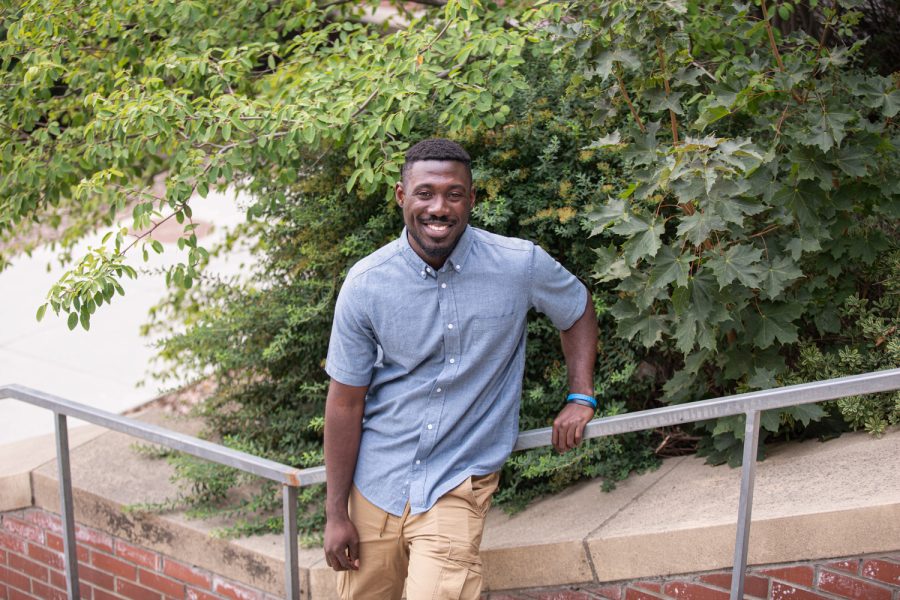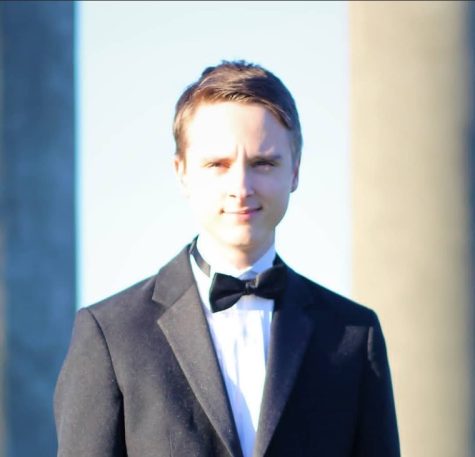Three Minute Thesis winner represents College of Education with presentation about gerrymandering
James Asare won $3,000 for travel grant in competition last week; event started at WSU in 2014
James Asare won WSU’s overall Three Minute Thesis competition after winning the College of Education’s competition.
March 29, 2022
James Asare, doctoral student in the College of Education’s department of math and science, won last week’s Three Minute Thesis competition with his presentation about gerrymandering.
Asare’s thesis seeks to address the question, “does the practice of gerrymandering segregate minority children in U.S. school districts?” Gerrymandering is the process of manipulating election boundaries to favor a particular party or group. Asare said it took a few months to write.
Trying to present all the information about the topic in three minutes was not easy, but it was possible with a lot of practice.
“It may look easy, but it’s not — because you need to bring people in and make sure your audience understands what you’re talking about,” Asare said. “You need to find a synergy between what you understand and making them understand.”
Asare said he saw many of the other submissions for the competition, and he thought all of them were strong presentations.
When he found out he won, Asare said he was surprised, but he knew that he had worked hard on the thesis and he was happy with his victory.
“I think basically I appealed to a general audience,” Asare said. “So when I won from the College of Education, I worked harder on it, and this time I thought of a more general audience, something that could make people understand what I was trying to say.”
Asare said he believed his body language connected with the judges in a way that helped him win.
He said he has not yet used his $3,000 grant award. The grant is designated for travel to a conference in his area of specialization, so he is considering multiple options.
Asare said he will not compete again next year because he wants someone else to have a chance to enjoy the experience.
Brandon Chapman, Three Minute Thesis administrator, said the yearly competition began within separate colleges in spring 2014 and opened up to the whole university a year later.
“Each year, every participating college or campus can take part in that event,” Chapman said. “Basically every winner from each individual event gets to go to the WSU one.”
Chapman said each participant is given exactly three minutes to give their thesis and the judges mostly look for the speaker’s effectiveness at giving their message, instead of their content.
“I don’t understand half of what researchers talk about. The Three Minute Theses, I understand 100% of the time what they’re talking about because they do a really good job at making their research understandable and accessible,” Chapman said.
The Three Minute Thesis has been held online since 2020 because of the pandemic. However, Chapman said he is planning for it to be held in person next year.
The idea to hold a Three Minute Thesis competition at WSU came from Simon Fraser University in Canada; however, the idea originated at the University of Queensland in Australia, Chapman said.
Chapman said the judges grade the theses on many criteria, including if the speaker has good eye contact, if they seem passionate about their research and if they make good use of their time.
“The biggest thing is, did they tell a story? That is the number one thing besides having a friendly, smiling disposition, did they tell a good story?” Chapman said.
Judges commonly praise high-ranking contestants for their use of humor and presentation of the theses, Chapman said.
“I’ve always admired the international students where English might be a second or third language, but they still have the courage to go out and do this, knowing people will go out and judge them,” Chapman said.










